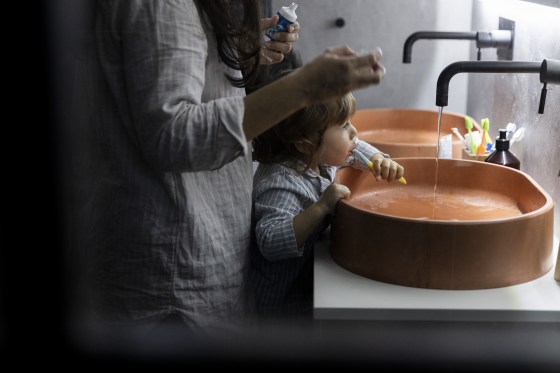
The subject of whether fluoride in drinking water is associated with lower IQ scores in youngsters is once again brought up by a recent study.
The study reviewed 74 other studies that looked into the potential effects of the mineral on children’s IQ scores and was published in JAMA Pediatrics Monday.
The study discovered a statistically significant correlation between children’s IQ scores and increased fluoride exposure. In an email, Kyla Taylor, the study’s author and a health scientist at the National Institute of Environmental Health Studies at the National Institutes of Health, stated that the more fluoride a child is exposed to, the more likely it is that their IQ will be lower than if they were not exposed. It was not possible to interview Taylor.
According to Taylor, children’s IQs drop by 1.63 points for every tiny rise of fluoride detected in their urine.
The removal of fluoride from drinking water was not recommended by the researchers. The authors of the study claim that the majority of the 74 papers they examined were of poor quality. All of them were conducted in nations other than the United States, like China, where scientists measured the amount of fluoride in urine and water. The researchers pointed out that fluoride levels in China and other nations are often far higher than those in the United States.
In the United States, fluoride has been a part of public water systems for many years. Since fluoride was introduced, no studies conducted in the United States have found any discernible declines in children’s cognitive development.
Many cities around the nation have seen an increase in opposition to fluoridated water. The removal of fluoride from public water supplies has already been approved by certain voters.
Dentists are concerned that the results could have negative public health effects.
Pediatric dentist Dr. Erica Caffrey, who chairs the Council on Clinical Affairs of the American Academy of Pediatric Dentistry, stated, “What we have seen, though, in areas where fluoride has been removed, is that dental decay rates have increased dramatically.”
Although fluoride has been shown to help reduce tooth decay, some experts believe that any potential connection to neurotoxicity in children needs more research.
Dr. Bruce Lanphear, a health sciences professor at Simon Fraser University in Canada, stated, “At the very least, we urgently need to have an independent scientific panel come together to review the evidence.”
The recommended fluoride concentration in drinking water is 0.7 mg/L, according to the U.S. Public Health Service. According to Taylor of the NIH, there is insufficient information to assess if that level affects children’s IQs in the United States.
The campaign against fluoride worries Dr. Courtney Peterson, a pediatric dentist in private practice in Buffalo, New York.
She said, “I think people are going to freak out.” Without doing any research, people will see the headline and conclude that high fluoride levels will cause a host of issues.
Nevertheless, during the upcoming term of President-elect Donald Trump, the fight over fluoride is probably going to get more intense. Robert F. Kennedy, Jr., his choice to head the Department of Health and Human Services, had previously claimed fluoride was “an industrial wasteassociated with arthritis, bone fractures, bone cancer, IQ loss,” and other issues without any solid proof. NBC News later reported that Kennedy stated that “fluoride is on the way out.”
There has never been a double-blind, randomized, controlled clinical research to investigate the potential effects of fluoride on children, which is a major area of contention in the fluoride controversy.
However, a study of families with infants younger than six months who use fluoridated or nonfluoridated bottled water in their formula and drinking water has been started by researchers at the University of North Carolina, Chapel Hill. The children will be monitored for four years.
Note: Every piece of content is rigorously reviewed by our team of experienced writers and editors to ensure its accuracy. Our writers use credible sources and adhere to strict fact-checking protocols to verify all claims and data before publication. If an error is identified, we promptly correct it and strive for transparency in all updates, feel free to reach out to us via email. We appreciate your trust and support!
